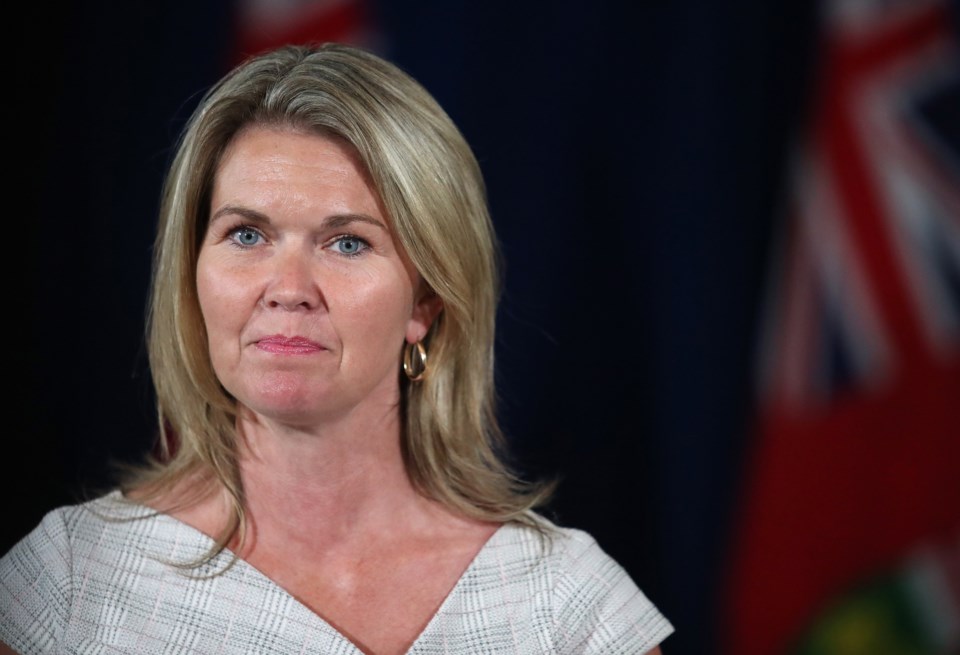Days after the federal government unveiled a plan to curtail the number of international students coming to Canada, Ontario announced a moratorium on new public-private college partnerships.
However, according to an economist who consulted with the federal government on its plan and some college presidents, those partnerships are already in jeopardy because of the federal announcement.
It's the most concrete among a suite of measures meant to rein in "predatory practices" that have led to increased housing costs and accusations of exploitation.
The province also promised to require all colleges and universities to "guarantee that housing options are available for incoming students," and bolster oversight of programs with a lot of international students, though the commitments lack further detail.
The Tories didn't include any promises about increasing post-secondary funding or allowing schools to raise domestic tuition, which has been frozen since 2019, two factors that have led schools to rely on international student tuition to make up for the revenue shortfall.
An expert panel recently recommended the province take those steps to ensure the sector can survive and institutions have lobbied hard for the government to act.
"Many colleges and universities have passed the point where they could survive financially with only domestic students. They are financially sustainable only because of international students," it said.
Public-private college partnerships are when a private institution teaches a public institution's curriculum, and though the student didn't attend the physical school, they still get a degree from it and a Canadian work permit. The number of schools has exploded in recent years alongside international enrolment.
Earlier this week, federal Immigration Minister Marc Miller announced a two-year cap on international student visas at the Liberals' cabinet retreat in Montreal. In 2024, Ottawa will approve 360,000 international students and divide them up across the provinces by population, resulting in a 50 per cent decrease in permits in Ontario. The provinces will then decide how to split enrolment between the individual institutions.
Miller also announced new international students at public-private college partnership schools won't be eligible for work permits.
Schools in Ontario and across the country fretted about the impact the policy will have on their bottom lines.
The cap "may have unintended consequences for the sector and for international students," the Council of Ontario Universities said, noting their finances "were already at a breaking point."
Northern Ontario schools will be particularly hard-hit, school presidents told The Trillium.
"Removing the post-graduation work permits from the private-partner colleges will impact us by about a third of our $125 million budget," said Sault College president David Orazietti. "That is disastrous. That results in significant financial hardship for our campus here in Sault Ste. Marie."
He and Kristine Morrissey, president of Sudbury's Cambrian College, told The Trillium that if implemented, the rule change would mean most colleges would end their partnerships, a key source of revenue for public institutions.
Miller, however, directed blame to the provinces.
"I'm not the minister of post-secondary education underfunding, I'm the minister of immigration," Miller said. "Clearly, in the last decade or so or even longer, post-secondary institutions in Canada have been underfunded by provinces."
Mike Moffatt, founding director of the PLACE Centre at the Smart Prosperity Institute who has advised the federal cabinet at the two most recent retreats, commended the provincial government for promising to review certain programs and ensure housing but was concerned about the lack of detail surrounding those promises and others.
Instituting a moratorium on public-private college partnerships is a "really concrete piece," but "nobody was going to open one of those" after Miller announced the cap and work permit crackdown, he said.
"I can't imagine anybody wouldn't want to establish a (public-private college partnership) in this environment. So putting a moratorium on it doesn't doesn't really seem to accomplish much," said Moffatt.
Guaranteeing housing will be difficult to enforce, he said. Forcing schools to provide on-campus housing would "essentially shut down the colleges" and schools don't have control over vacancy rates of off-campus housing.
The province could move to allow for more density near post-secondary institutions, as it's planning to do around major transit stations.
One PC insider, who spoke to The Trillium on background, also commended the government for promising to crack down on bad actors but lamented the generality of the housing commitment.
They also provided a dire warning.
"The real question is whether Ford can stomach multiple Laurentians. That's where this is headed if he doesn't step up by unfreezing tuition."
Laurentian University filed for creditor protection in 2021, leading to mass layoffs and program cuts.



